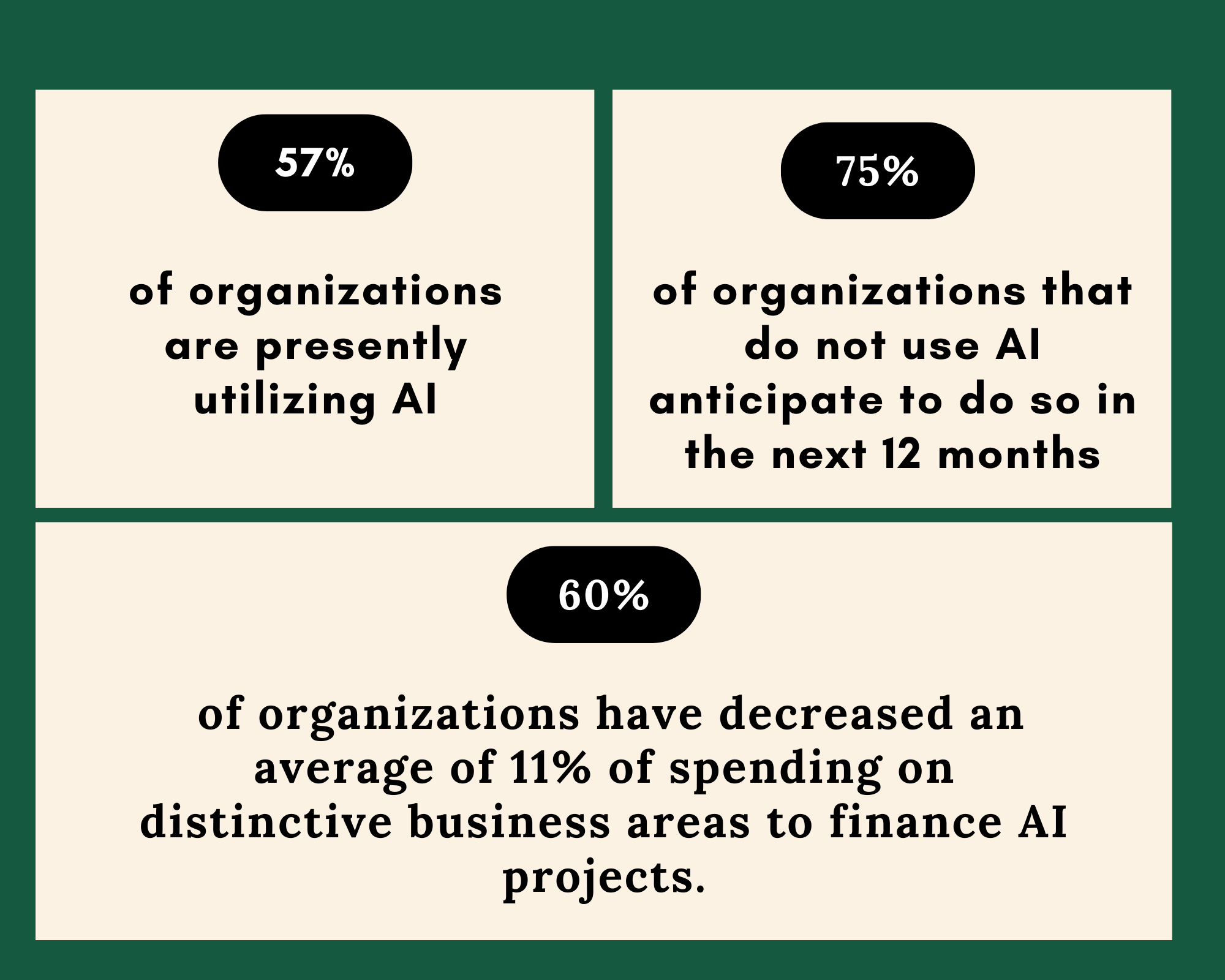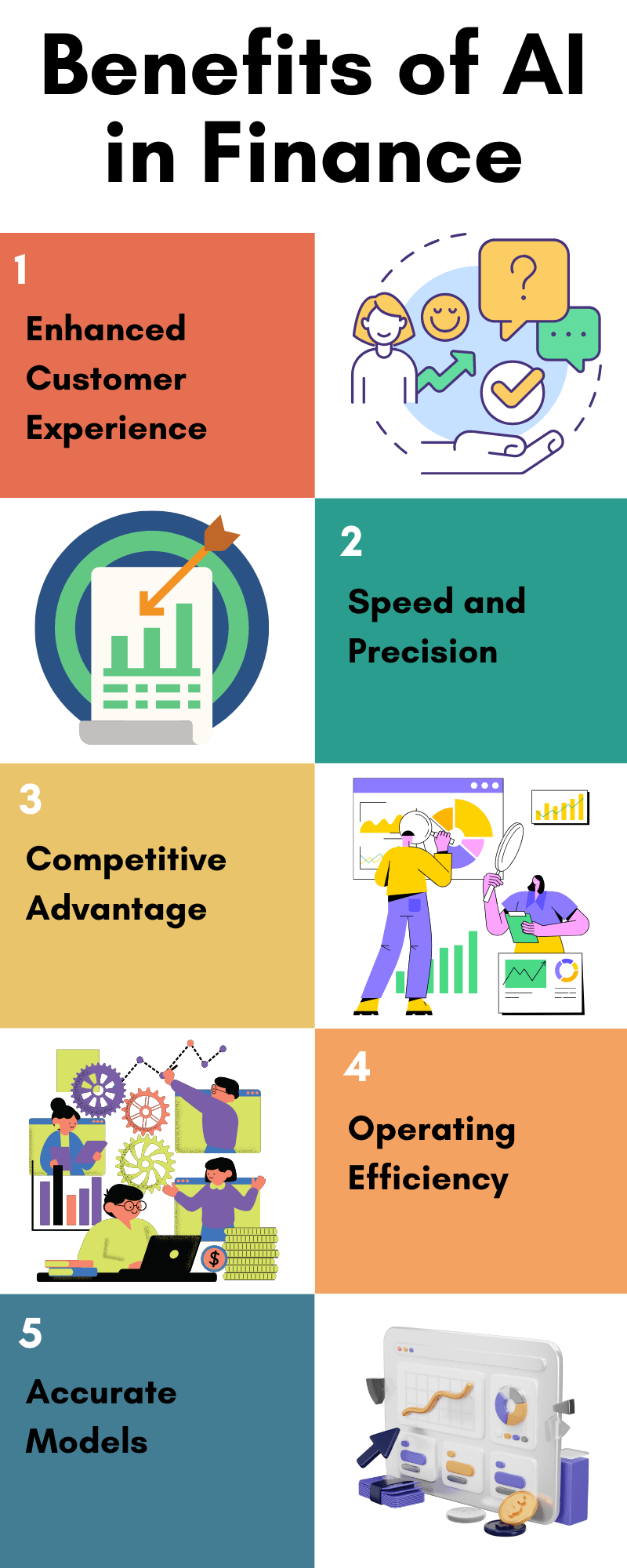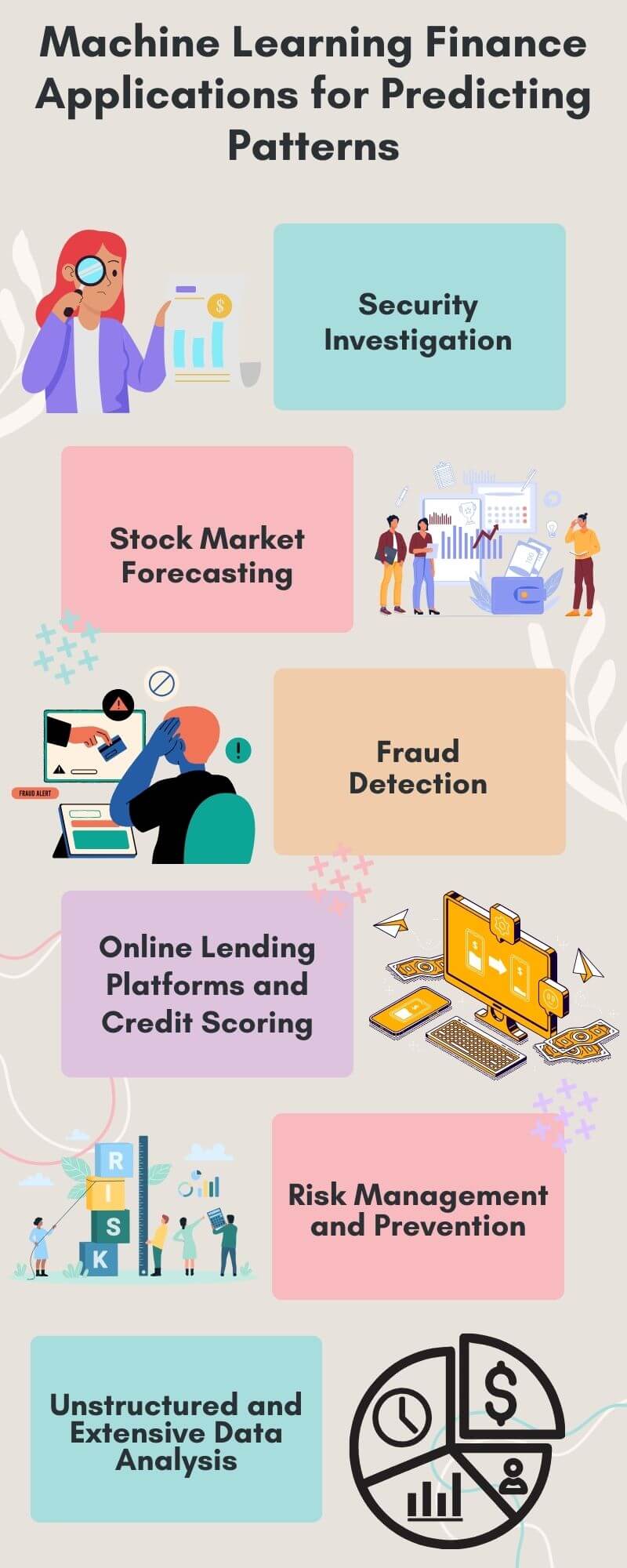Table of Contents
The surge in AI technology is improving customer interactions and expanding staff rendition in finance firms and banks. AI in the finance industry exemplifies this combination of consumer-centric processes, financial understanding, and tech advances. Interior transformations should be expedited for businesses to flourish in this fluid environment.
According to reports published by Microsoft, 71% of decision-makers admitted to shifting their businesses according to AI demands and appeared to gain a return on their AI investment within 14 months. The conclusion was the result of a survey conducted by IDC in agreement with Microsoft, where they studied the answers of 2000 businesses that welcomed the AI transformation to boost their workplace productivity and elevate the customer experience.
We are past the generation of one-size-fits-all solutions for banks and the finance industry’s diverse AI needs. Authentic creation begins by comprehending and building AI banking solutions that encounter and fulfill the user’s necessities and continuously redefine them. The data-driven mindset and approach that AI gained have also marked a tech evolution in the BFSI industry, necessitating abilities.
Wall Street to Main Street Market Overview of AI in the Finance Industry

In the tech-evolutionary world of finance, information and transmission dominate financial transactions. Stock traders, asset investors, and economic associations continuously pursue an advantage by making analytic-powered and data-driven decisions to maximize returns. From hedge transactions on Wall Street to confidential finance apps and products on Main Street, AI reflects the transformational nature of how we operate and deal with our money.
Considering that the survey conducted by IDC with assistance from Microsoft revealed transformational facts about the AI preferences of average decision-makers, they also unveiled the outcomes post-AI adoption. For every $1 a finance establishment invests in AI, it acknowledges an average of $3.5 as ROI, and 5% of associations around the globe recognize an average of $8 as ROI. Enterprises utilizing AI noticed an 18% upsurge in customer satisfaction, overall employee productivity, and expanded market share.
Ernst & Young LLP (EY US) recently released its Financial Services GenAI Survey reports, indicating that the finance industry leaders benefit from AI adoption. While 46% said they benefited from data processing regarding risk reduction, the other 38% stated they had an advantage in creating new offerings and hyper-personalized marketing.
Mapping the Virtual Needs of Finance and Banking with AI and ML
The financial services industry has insinuated the phase of artificial intelligence in the digital voyage. This voyage began with the origin of the internet and has carried associations through multiple phases of digitalization. The emergence of AI development services in the finance industry is disrupting the vertical’s physics, weakening the bonds that have harbored the elements of standard financial associations concurrently and opening the door to better inventions and new operating prototypes.
AI is a sub-part of computer science that highlights the outcome of intelligent machines that function and execute tasks like humans. These appliances can familiarize themselves and collect and analyze information to make forecasts based on this data. AI has become a crucial aspect of technology in the Banking, Financial Services, and Insurance (BFSI) Industry and is transforming the pattern of products and services presented.
To begin an in-depth understanding of AI and ML app development in the BFSI industry, it’s time to dissect the importance of intelligent technologies and Fintech app development and their outcomes for finance companies and firms.
Artificial Intelligence and Financial Services
AI and ML technologies are efficiently becoming necessary parts of humans’ everyday lives worldwide and in every vertical that involves human life. AI in the finance industry must deploy these technologies in the hierarchy to stay suitable. To thrive in the finance industry demands a holistic conversion traversing numerous layers of the organization.
Most FIs have heeded and are persuaded that a substantial proliferation in revenue growth possibilities, pruning of operating expenditures, and manual task automation can enhance the bottom line by at least 20%.
Future of Artificial Intelligence in Finance with Faster Decision-Making Processes
Integrating AI into financial decision-making methodologies alters traditional functioning from intuition-based to data-driven approaches. This transformative transition involves embracing the latest technologies and fundamentally improving decision-making in the financial industry.
It concerns gathering and interpreting large datasets, instructing AI standards to identify patterns and anticipate results, and involving these discernments to make informed judgments. AI-driven conclusions are based on complete data examination, decreasing the margin of mistakes compared to human examination at a faster speed.
Benefits of AI in Finance: Comprehending the Advantages and Risks for Immersive Growth

1. Enhanced Customer Experience
AI technology is authorized for custom customer interactions with virtual assistance and Chatbot app development. AI-powered chatbots guarantee 24/7 contribution by responding to inquiries without human assistance. AI can interpret data to offer custom financial guidance and recommendations based on interests and practices, enhancing customer experience.
2. Speed and Precision
AI smoothly processes extensive data, revealing patterns and connections that can often escape human investigation. This ability encourages more rapid insights necessary for decision-making, stock trading, threat assessment, adherence, and diverse financial processes, eventually improving efficiency and dexterity within the industry. AI’s speed allows real-time adjustments to market prerequisites. It enhances responsiveness to active financial scenarios, authorizing institutions to stay ahead of the curve and monetize on arising opportunities with dexterity and accuracy.
3. Competitive Advantage
Utilizing machine learning algorithms, financial enterprises can now receive meaningful insights into danger elements, market trends, and client conduct. FinTech associations can make wise judgments faster than they can with conventional techniques and AI’s capability to examine enormous quantities of data rapidly. With AI-driven analytics, associations can adjust to altering market requirements more swiftly, offering them a competitive advantage.
4. Operating Efficiency
Executing AI in finance streamlines processes by automating repetitive operations like document processing, data entry, and data updation. Automation decreases the possibility of human fallacy and confirms data correctness. By downsizing manual labor needs, AI releases resources from repetitive tasks and facilitates financial institutions’ utilization of human capital for valuable and essential tasks.
5. Accurate Models
AI systems are adept at translating complicated datasets and building accurate predictions for investing tactics, threat evaluation, and fraud identification. AI enhances decision-making strategies by recognizing patterns and tendencies that human reviewers might overlook. With more authentic prototypes, financial organizations can more specifically detect fraudulent movement and limit risks.
Read More- Benefits of Artificial Intelligence
Machine Learning in Financial Industry
The use of machine learning strategies in the financial industry is developing the need for resourceful solutions. Today, machine learning is utilized for all tasks, from threat assessment to trading conclusions. It has transformed how the financial services industry functions and handles data.
Data-Driven Future of Machine Learning Applications in Finance
Envision you’re an inquisitive adventurer delving into the core of an extensive and uncharted woodland. You are not provided with a map but an exceptional instrument: a pair of extraordinary glasses that uncover secret paths and unanticipated jewels. In finance, these metaphoric instruments are machine learning, an intelligent technology that offers businesses data-driven insights and helps in decision-making in incredible ways.
Empowering the Machine Learning Finance Applications for Predicting Patterns

1. Security Investigation And Portfolio Management
New-age robo-advisors are a noteworthy model of machine learning use cases in finance. Although they can deviate from counting on the financial company presenting the service, they generally refer to online services that offer investment recommendations and assist users in building and managing investment portfolios.
2. Stock Market Forecasting
The finance industry frequently utilizes ML technology to anticipate stock prices and impact trading decisions. It utilizes extensive historical data collections to make forecasts about the future understanding of the market. Here are two kinds of trading that machine-learning technology facilitates:
Algorithmic trading:
Recognizing patterns and creating trading procedures with speed and accuracy.
High-Frequency Trading (HFT):
Determining trading possibilities and managing trades at high speeds.
3. Fraud Detection
Machine learning standards comprehend by recognizing patterns. Such patterns assist them in comprehending normal conduct and make it more uncomplicated to detect questionable movements, like money laundering or insider trading.
4. Online Lending Platforms and Credit Scoring
The finance industry uses machine learning instruments to evaluate loan applications and compute credit scores. Online lending platforms yield real-time information and instruct affordable loans based on the financial histories of users
5. Risk Management and Prevention
In finance, ML technology is often operated to fund investment decisions by recognizing risks based on historical information and probability statistics. It can also consider potential consequences and create risk management procedures.
6. Unstructured and Extensive Data Analysis
Machine learning in finance has made dragging and interpreting unstructured data from records like agreements or financial statements easier.
Artificial Intelligence App Development Cost Breakdown
The final discussion that plays an essential role in AI adoption is the estimated capital investment that a finance company and associations must consider. Providing a concrete app development cost can be tricky, considering it depends on multiple factors, such as the app’s complexity and the product’s performance.
However, to estimate the artificial intelligence app development cost it can range from $30,000 to $150,000 based on the complexity of app features and functionalities.
Why Choose AppsChopper as Your AI App Development Company?
As the ultimate artificial intelligence app development company that guarantees AI-powered FinTech app development services, AppsChopper operates with banks and financial organizations to create custom AI and ML-based standards that enhance revenue, decrease capital investment, and mitigate threats in various departments.
Our experts can help you employ AI to provoke transformational shifts because they are familiar with artificial intelligence and cognizant of the banking industry’s particular situations. They can assist you in building AI-powered solutions that improve risk management, automate processes, and enhance client experiences.







